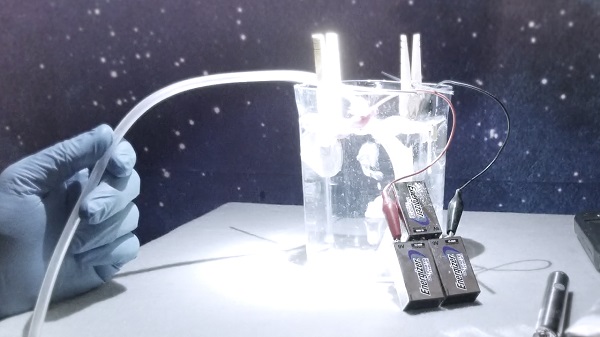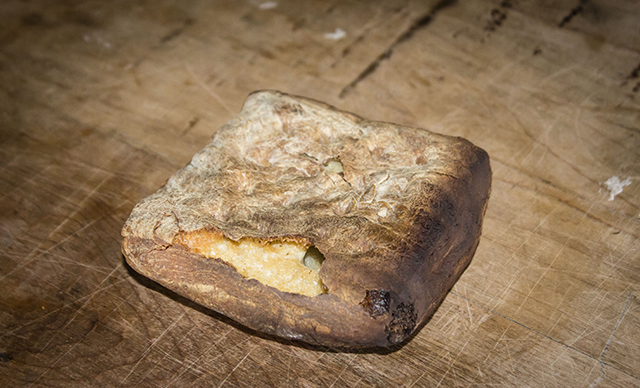Here are five natural heartburn remedies that went head to head with drugs and won
(Article republished from
GreenMedInfo.com)
Whether you call it heartburn, acid reflux, GERD, or just indigestion, the discomfort is unmistakable. It's a sour taste at the back of your throat... a burning sensation in the middle of your chest... a persistent dry cough... a painful sensation in your stomach.
Over 60 million Americans get the symptoms at least once a month. And millions every day reach for over-the-counter antacids like Tums. Others rely on histamine blockers like Tagamet (cimetidine), Pepcid (famotidine), or Zantac (famotidine).
Heartburn is now so widespread that the
third leading class of drugs on the market is proton pump inhibitors (PPIs). These drugs include Prilosec (omeprazole), Nexium (pantoprazole), and Prevacid (lansoprazole).
Proton Pump Inhibitors were originally prescribed for short-term treatment of peptic ulcers. But today long-term use of these drugs is common for the relief of heartburn and acid reflux. And they've been associated with a long list of serious side effects including:
- Vitamin B12 deficiency
- Deficiencies of magnesium, zinc and calcium
- Increased bone and hip fractures
- Irritable bowel disease
- Pneumonia
- Vitamin C Deficiency
- Gastric Cancer
- Myopathies
- Cognitive malfunction
- Food allergies
- Clostridium Difficile Diarrhea (C. Diff)
[View the entire list of 30+ adverse effects on GreenMedInfo's
Acid Blocker Research page.]
And none of those pharmaceutical remedies get to the immediate triggers or the root cause of acid reflux. Some aren't even very good at relieving the symptoms.
Here are five natural remedies that went head to head with drugs and won.
1. Melatonin Beats Prilosec
Brazilian researchers conducted a
single blind randomized study of patients suffering from gastro-esophageal reflux disease (GERD). Every day half the patients took 20 mg of omeprazole (Prilosec). The other half took a supplement containing melatonin as well as l-tryptophan, vitamin B6, folic acid, vitamin B12, methionine and betaine.
After just 40 days
100% of the melatonin group had a complete remission of their symptoms. But only 65.7% of the Prilosec group got relief.
[i]
Another study of 34 GERD sufferers found that
melatonin accelerates the healing effect of omeprazole and therefore shortens the duration of treatment and minimizes adverse side effects.
[ii]
And a case
study published in Alternative Therapies In Health and Medicine reported that a 64 year-old woman with GERD wanted an alternative to PPIs because she already suffered from osteoporosis. Her doctor found that after 40 days on 6 mg of melatonin she was able to discontinue her PPI without returning symptoms.
[iii]
2. Gluten-Free Diet (GFD) Rapidly Improves GERD
Foods containing gluten are a frequent cause of heartburn. Eliminating gluten can resolve the problem.
A study in Argentina evaluated 133 adult celiac disease patients and 70 healthy controls. For four years the participants answered questionnaires about GERD symptoms.
[iv]
At the beginning of the study 30.1% of the celiac patients had moderate to severe GERD compared to 5.7% of the healthy controls. After just three months on a gluten-free diet,
celiac patients rapidly improved their GERD symptoms. Their symptom rates dropped to those of healthy controls.
And Italian researchers found that a
gluten-free diet resolved non-erosive reflux disease in celiac patients after just eight weeks with no recurrence at 12, 18 and 24 months.
[v]
3. Ginger Better Than Prevacid
Researchers in India compared ginger to lansoprazole, sold under the brand name Prevacid.
[vi]
In an
article published in the journal Molecular Research and Food Nutrition, they found that one compound in ginger was
6 to 8 times more potent than Prevacid at inhibiting acid production. In addition, ginger has powerful antioxidant properties that protect fats from oxidizing and shield DNA from damage. The researchers concluded that specific fractions within ginger have "potential in-expensive multistep blockers against ulcer."
4. Acupuncture More Effective Than Proton Pump Inhibitors
When PPIs prove ineffective for patients, doctors typically double the dose. University of Arizona researchers
compared a second dose of proton pump inhibitors to acupuncture treatments in GERD patients. In a 4-week randomized study of 30 patients, half were assigned to take a double dose of their PPI. The other half took their normal dose but received acupuncture treatments twice a week.
The acupuncture group experienced significant decreases in daytime heartburn, night-time heartburn, and acid regurgitation. They also significantly improved their general health. Those taking a double dose of their PPI did not have any significant changes.
[vii]
5. Water Lowers Stomach Acid Faster Than Drugs
Greek researchers
tested various antacids and PPIs against drinking a glass of water to reduce stomach acid. They gave 12 healthy subjects a single dose of either water (about 7 ounces), an antacid, Ranitidine (Zantac),
Omeprazole (Prilosec),
Esomeprazole (Nexium), or Rabeprazole (AcipHex). Then they monitored their stomach acid for six hours.
They found that far and away water worked fastest to decrease stomach acid taking only one minute to be effective. The antacid took twice as long and the drugs took anywhere from 50 to 175 minutes to match water.
[viii]
For more information on how to relieve symptoms of acid reflux, read
Heartburn Solved: How to Reverse Acid Reflux and GERD Naturally.
Read more at:
GreenMedInfo.com
 Parler
Parler Gab
Gab










